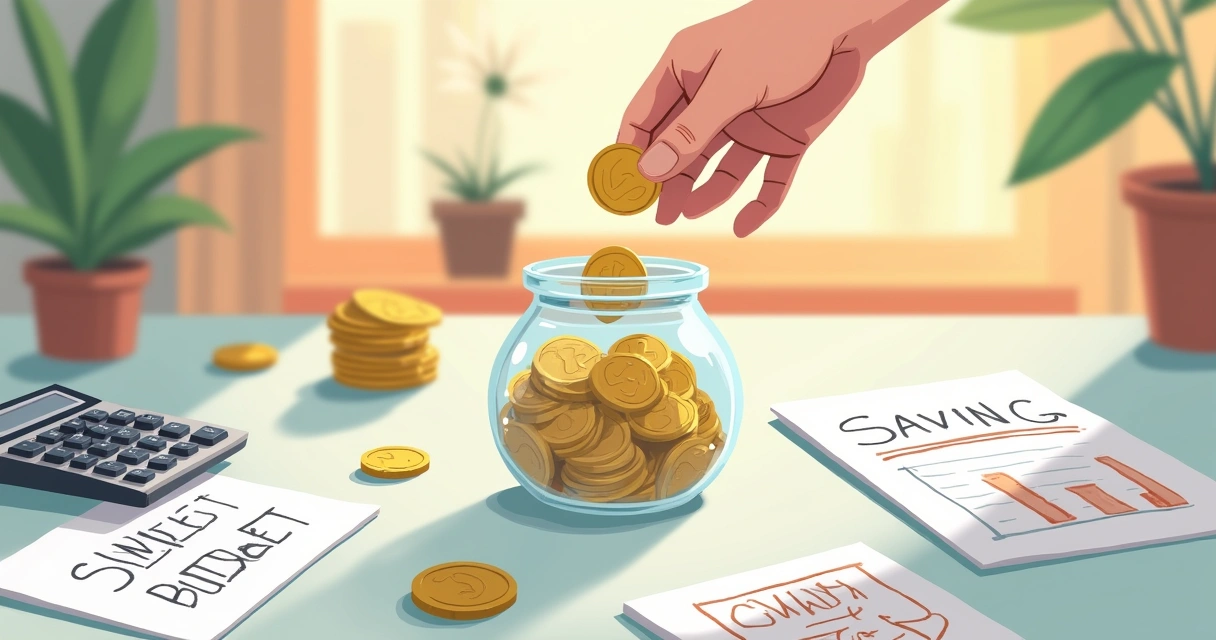Rich Dad Poor Dad: 7 Principles Beginners Ignore in 2025
18 May 2025
The world of personal finance seems to speed up each year. New tools, new headlines, new risks—sometimes, it's dizzying. Yet there are certain ideas that stand as quietly firm as they did decades ago. The lessons that Robert Kiyosaki put out in Rich Dad Poor Dad are like this. People talk about them, but, more often than not, beginners skim over the tough parts or ignore them altogether. This happens even as financial literacy, according to the World Economic Forum, remains frustratingly low worldwide, with only a minority of adults feeling confident about their money choices.
It makes me think: Do old-fashioned principles still help in a digital, fast-paced, 2025? I’d argue, yes—and not just for nostalgia’s sake. These principles are easy to read. Much harder to live by. If you’re just starting out, or even if you’ve been around the financial block (and back), these are the hard-learned truths that are so often skipped in favor of the latest “hot tip.” Here’s why ignoring them could be costing you.
Why rich dad poor dad won’t just fade away
Financial advice is everywhere. Scroll for five minutes and you’ll see trending posts about crypto, secret stock picks, or “hacks” for doubling your salary. But real change—habits that lead to actual security and growth—tends to anchor itself in first principles. Rich Dad Poor Dad is not a finance textbook. It is, at its bones, about mindsets, frustrations, psychology, even family pressure.

If studies like those from the National Financial Educators Council are right, Americans lose over $1,000 a year each to financial mistakes and confusion. For most, it's not because we don't want to do better. It's because we underestimate that change starts—sometimes painfully—in our heads, not our wallets.
Let’s talk about the seven principles that get quietly missed or shrugged off in 2025, even as the “rules” of the economy keep shifting.
Principle 1: the difference between assets and liabilities is slippery
If you forget every other lesson, keep this one. It’s so easy to blur the line between an asset and a liability. In 2025, the definitions might feel even less clear because of shiny apps and complicated fintech jargon.
An asset puts money in your pocket. A liability takes it out.
Yet, I hear people say, “My car is my biggest asset. My house is my best investment.” That’s not always true. If you’re paying interest, maintenance, and never seeing cash flow, it’s not an asset—it's a burden dressed as a trophy.
Maybe it seems old-fashioned, but tracking what truly feeds your bank account versus what quietly siphons away cash makes the biggest difference in long-term growth.
- Rental property that pays you each month? Asset.
- Fancy SUV needing monthly payments? Liability.
- Stocks you hold for years, that pay dividends? Asset.
- Gadgets on credit? Liability.
People all over the world, according to data from the OECD, misunderstand these basics. It’s not because it’s hard to learn. It’s just uncomfortable to admit.
Principle 2: earn, then learn, then earn again
Earning is not about scrambling for the highest salary out of school or chasing the next side-hustle lead you saw on social media. True growth—in finance or career—means flipping the usual script. Instead of “Learn, then earn,” in reality, it's a looping process.
Sometimes you earn, hit a ceiling, realize you need new skills, learn, and then earn in new ways.

When I first read about this “earn-to-learn” loop, I shrugged it off. But a year later, stuck in a job where my skills stopped being valuable, I felt the truth hit. Sometimes, you need to let go of old paychecks to gain new knowledge—or leverage older knowledge for something better.
This continuous shift feels off-balance. Makes sense. Life rarely runs in a straight, upward line. Growth might mean a step backward today, to leap forward later.
State programs in the US are slowly catching up, requiring more personal finance education in high schools. Still, for anyone outside the classroom, this learning loop is all on you. No one will enforce it for you.
Principle 3: work to learn, not just to earn
Kiyosaki’s point hits like a cold shower: Don’t work for money. Work for what you need to learn next. But tell that to someone who’s got bills to pay and not much patience, and it just lands as a cliché.
Yet, the skill you pick up at the job you barely tolerate? It might pay off in a decade. Skills compound. Sometimes, slowly—almost painfully—until, one day, they’re the single reason you land a dream opportunity.
Think of how jobs in 2025 aren’t for life. The “traditional career” is blurry, freelance or full-time, remote or hybrid, gig-based or project-based. If you’re picking jobs only for the paycheck, ignoring what you’re becoming in the process, you’re shortchanging yourself. I find it strange that I only understood this after changing jobs too many times.
Maybe that’s just what learning feels like. A little bit stubborn, often in hindsight.
Principle 4: letting fear steer your money decisions
Fear is a natural part of dealing with money, no matter what social media says. The fear of losing. The fear of missing out around investments. The fear of looking foolish for making a mistake.

Most people let fear stop them from trying, so they never fail—but also, they never really win.
This was one of the hardest principles for me. I’d put off investing, thinking the market would crash. Postpone asking for a raise, afraid of rejection. Avoid new projects, thinking I’d mess up. But risk, controlled and measured, grows skill and savings over time.
Still, in 2025, fear is amplified by news headlines or a friend’s recent loss. Social feeds rarely highlight “steady progress.” It's flashy wins or epic losses. No wonder beginners freeze. They see risk everywhere, but not the small wins hiding in persistence.
More than 18% of EU adults have low levels of financial knowledge, according to recent surveys by the World Economic Forum. Fear survives in silence and confusion, so it multiplies.
Principle 5: ignoring the power of habit (when $10 matters more than $1,000)
Some people laugh when I mention small daily spending. “A coffee doesn’t matter,” they say. “It’s my only treat.” But think about it:
- You spend $10 extra a day, it’s $3,650 a year.
- If that money worked for you, instead—earning even 5% returns—the number grows faster than you’d expect.
This isn’t about guilt. It’s about seeing habit as a force. Bad ones keep you stuck; good ones slowly, then suddenly, create freedom.
There’s an interesting piece about habits that slowly ruin budgets. Most people focus on big changes instead of the dozens of little actions that add up.
Tiny habits build or break empires.
Financial independence isn’t a lottery win. It’s a pattern repeated, over and over, even on boring days.
Principle 6: making money without understanding money
The digital age made it easier than ever to put money into things we barely understand. Platforms look simple. But the complexity? Hidden deep in fine print or volatile returns.
The Office of the Comptroller of the Currency tracks how states now require finance education in schools, with California joining the list in 2024. Still, adults often assume such lessons are for teens. The truth? Gaps in grown-up financial knowledge are massive, and can cost thousands each year (National Financial Educators Council).

Passive income, crypto, fractional shares, robo-advisors. Fancy words don’t make investment safe. Understanding comes first. Otherwise, luck—or bad timing—decides the outcome.
Sometimes, what looks like “easy money” is just greased by “easy misunderstanding.” And the market punishes ignorance without regret.
If you’re interested in how classic wisdom applies to new tools, see this list of timeless finance lessons pulled from older books and proverbs.
Principle 7: the myth of “good debt” (and why beginners get trapped)
Debt comes in many shapes. People talk about “good debt” with student loans, mortgages, business funding. Yes, it's possible to use borrowed money to make more—but beginners rarely see the traps until interest eats their dreams.
Not all debt is created equal. But most is risky, and few really master it in time.
Every year, millions try to “get ahead” by stacking up debts: cards, cars, buy-now/pay-later schemes. The math looks fine at first. But add a few surprises—a layoff, a broken car, a hospital bill—and suddenly, repayments balloon.
The fastest way to get stuck is to underestimate how quickly “manageable” debt can double. There are plenty of practical ways to start clearing debt; none are easy, but everyone wishes they started sooner.
Sometimes, walking away from “easy” debt is the hardest—yet sharpest—move a beginner can make.
What beginners still miss in 2025
Even as personal finance education becomes standard in more states and schools, as tracked by the Education Week report, so many people set out with high hopes only to run into the same walls:
- Not distinguishing assets from liabilities
- Repeating old money habits, expecting new results
- Letting fear and short-term losses control their choices
- Borrowing because “everyone does it,” then struggling to repay
- Investing without investing time in learning first
Most people don't fail for lack of opportunity; they fail for ignoring simple truths.
It isn’t always about how much you know today. It's how quickly you catch yourself skipping what feels “too basic to matter.” Revisiting these lessons—or perhaps learning them, really, for the first time—makes a difference.
Breaking old patterns and starting small
I've seen friends and family chase after sudden windfalls, complicated investments, or “new” advice. Sometimes it works out, often it doesn’t. What felt too slow at the start—steady habits, simple asset-building—ends up as the foundation for everything else.

A few years ago, when I thought budgeting and careful spending was “old advice,” I put off making changes. Now, I wish I had started back when $50 felt like a lot. The experience taught me to respect the slow build, to value habit over hype.
If you’re looking for ways to start, breaking things down into small steps helps. There are useful guides that break the journey into practical pieces—but even then, it’s about getting out of your own way long enough to follow through.
You’ll always have moments of doubt. Sometimes you feel stuck at square one. That’s normal. Small wins matter as much as big plans. Even $5 invested, a debt repaid, or a tricky skill learned—these moves push you forward.
Conclusion
It’s easier than ever to get distracted by the noise: market swings, viral videos, and overnight success stories. But deep down, the money truths that mattered decades ago still steer people right, especially when the world feels shaky or too quick to keep up with.
If you’re new, it’s tempting to dismiss these old lessons. Maybe you think, “That’s too basic,” or “I’m sure I won’t fall for those mistakes.” But, speaking from my own missteps, half of the battle is staying humble enough to revisit what you think you already know.
The basics aren’t just for beginners. They’re for everyone who wants to stay free.
You’ll be grateful one day for the time spent cementing simple principles. Because while fortune can come and go, understanding—real understanding—sticks. Even in 2025 and whatever comes after.
Frequently asked questions
What are the 7 Rich Dad principles?
The seven principles most closely drawn from Rich Dad Poor Dad and often ignored by beginners in 2025 are: (1) Understand the difference between assets and liabilities, (2) Earn to learn, then learn to earn, (3) Work to learn, not just to get paid, (4) Don’t let fear drive your money choices, (5) Develop powerful small habits, (6) Don’t invest in things you don’t understand, and (7) Approach all debt with deep caution—don’t fall for the “good debt” myth. These ideas shape how you see, spend, and grow money, no matter the economic climate.
How do beginners ignore these principles?
Beginners often skip over these lessons because they seem obvious—or perhaps a bit dull compared to trendy advice. Many think buying a big house or car will set them ahead, without tracking the true cost. Habit changes are shrugged off as too small to matter. Investing is rushed into without enough research. Fear makes people wait too long or panic at first loss. Debt feels normal, so risks are ignored. A core problem: most skip the “boring” fundamentals, thinking the world has changed more than it actually has.
Is Rich Dad Poor Dad still relevant?
In 2025, the book’s core lessons are as relevant as ever. While some examples are dated, the psychology and decision-making behind each principle fits a digital world where financial products multiply. Data from organizations like the OECD and NFEC shows that financial confusion and errors haven’t declined. In some ways, the flood of new options makes simple principles even more useful, not less.
How can I apply these principles today?
Start by tracking what drains your money each month and what builds it. Challenge yourself to reframe every purchase as either feeding your future or feeding your fears. Invest only in what you have taken time to learn, and consider growing your knowledge through side projects or new job roles (even temporary ones). Pay off high-interest debt quickly. Focus on building automatic, positive money habits—the kind that, over time, barely require effort. Resources like a guide to budgeting, shopping, and investing can help break things down. Don’t try to do everything at once; small steps pile up fast.
Where to learn more about Rich Dad ideas?
There are many books in the Rich Dad series that go into these topics in detail. If you’re seeking practical, step-based content, look for trusted finance blogs, podcasts, and real-world guides. Local library and nonprofit workshops are often surprisingly helpful. For tried-and-true perspectives, articles like timeless finance lessons from classic books and proverbs put these ideas in historical perspective, which can make the concepts even more relatable for new readers.